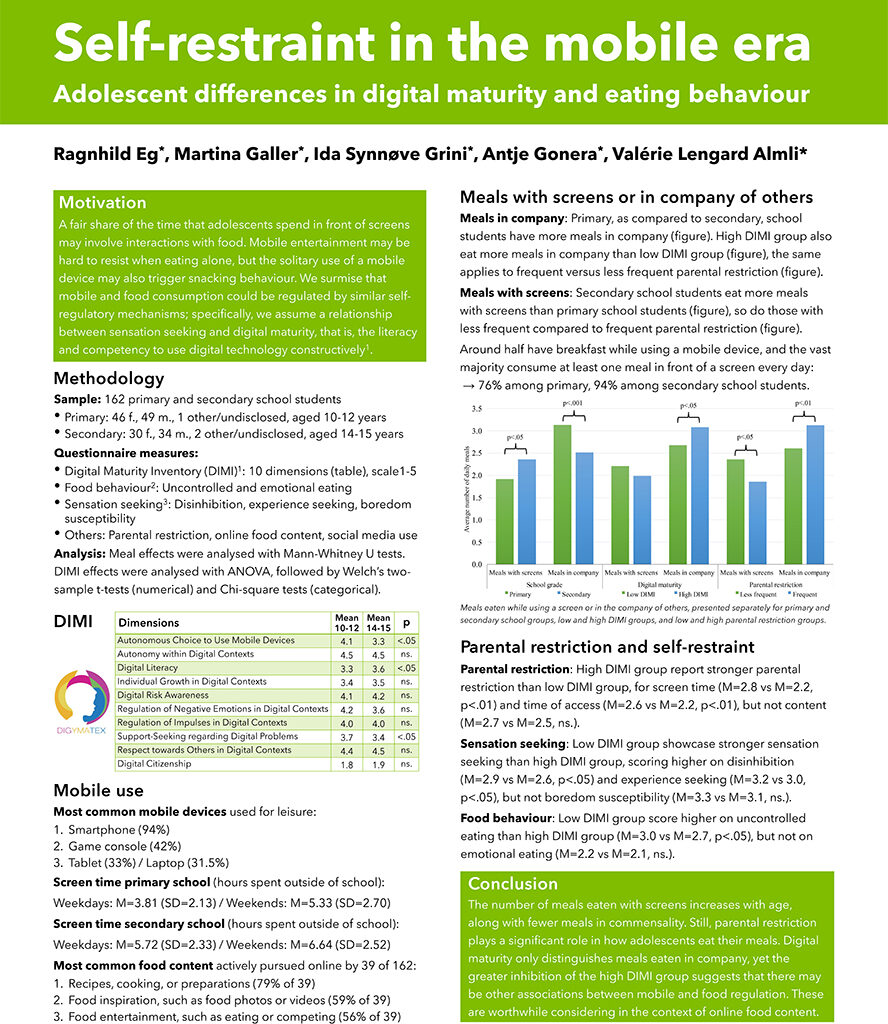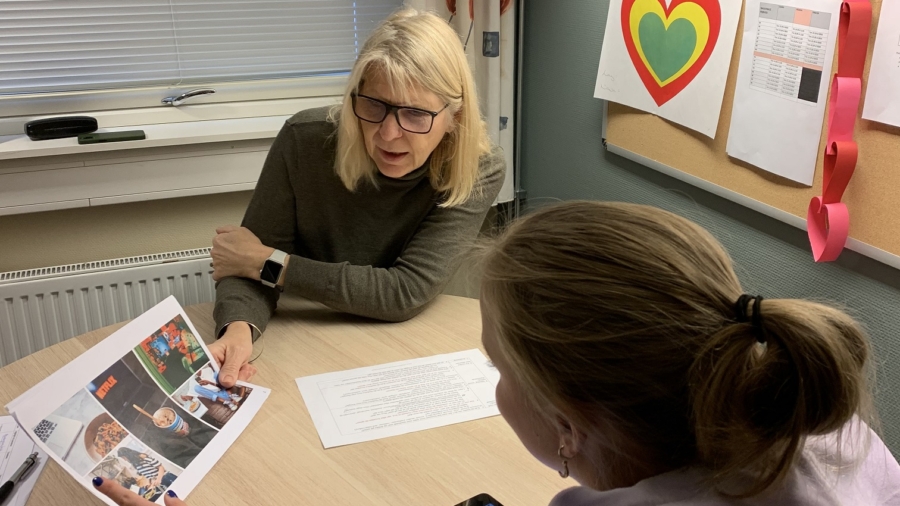DIGYMATEX partner Nofima, the Norwegian Institute of Food, Fisheries and Aquaculture Research, presented joint research demonstrating a link between uncontrolled eating and low digital maturity among adolescents at the PANGBORN Sensory Science Symposium, held 20-24 August in Nantes, France.
The participants, aged 10-12 and 14-15 years, completed a questionnaire on digital maturity, eating behaviours, sensation seeking tendencies, parental restriction, and mobile habits, including specific attention to interaction with online food content.
Based on the DIGYMATEX digital maturity inventory (DIMI) indicators, the adolescents were grouped as high or low in digital maturity to investigate whether the groups also differed in other domains related to self-restraint.
“Of particular interest were the disinhibition trait of sensation seeking and the uncontrolled eating factor,” the researchers explained.
“The low digital maturity group were more prone to sensation seeking than the high digital maturity group, scoring higher on both disinhibition and experience seeking, as well as uncontrolled eating”, they concluded.
Conversely, those who were had high levels on digital maturity reported more frequent parental restriction, though they were just as likely to report emotional eating and susceptibility to boredom.

Older adolescents appear to eat alone in front of a screen more often than younger adolescents, though parental influence can play a role in restricting such behaviour; moreover, eating meals together with others was associated with a higher digital maturity score, according to the study’s findings.
“Although the number of meals eaten with screens did not coincide with digital maturity, the greater self-restraint of the high scorers suggests that there may be other associations between mobile and food regulation,” the scientists commented. “These may be worthwhile considering in the context of online food content, which seems abundant.”
The questionnaire was completed by 162 adolescents grouped into a younger group (10 to 12 years old) and an older group (14 to 16 years old). The younger teenagers reported spending an average of 3 hours per weekday on mobile devices, while the older group spent 6.5 hours per weekday on their devices, and both groups spend even more time online on weekends. Fully 76% of the younger group and 94% of the older group report eating at least one meal per day while on screen, and around half begin their day with breakfast in front of a mobile device.
The study, titled “Self-restraint in the mobile era: Adolescent differences in digital maturity and eating behaviour”, was carried out by Nofima researchers Ragnhild Eg, Martina Galler, Ida Synnøve Grini, Antje Gonera and Valérie Lengard Almli with EU Horizon 2020 funding provided through DIGYMATEX.

